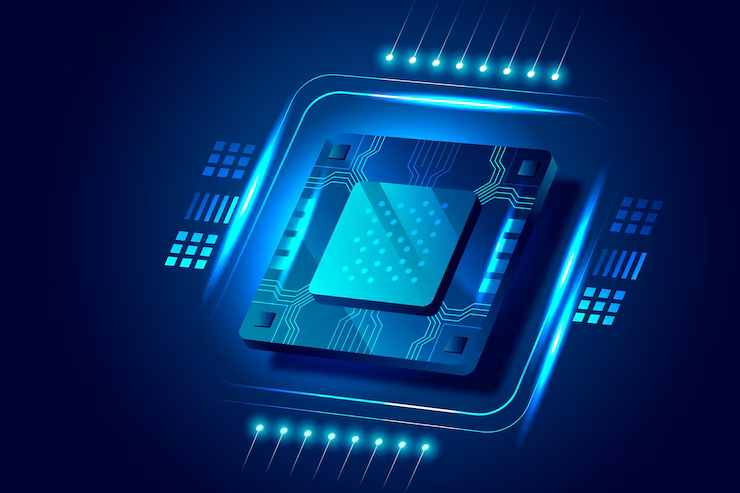Latest chipset technology for mobile devices is shaping the way smartphones function, feel, and perform. At Tech Remain, we explore how innovation at the chip level enhances speed, energy efficiency, and multitasking. These tiny yet powerful components are the brains behind modern smartphones, playing a crucial role in everything from camera processing to mobile gaming.
Latest chipset technology for mobile devices is no longer just about faster CPUs. It’s about smarter integration of AI, better connectivity, and superior thermal control. From budget phones to flagship models, chipsets dictate the user experience. Understanding their role gives insight into how much value and performance a smartphone can deliver.
What is a Phone Chipset?
A phone chipset, also known as a system-on-chip or SoC, is a central component responsible for managing all major smartphone functions. It includes the CPU, GPU, memory controllers, and connectivity modules all on a single integrated circuit. This enables efficient communication among different hardware parts, resulting in better performance and battery optimization.
The latest chipset technology for mobile devices blends hardware and software to allow seamless execution of apps, faster boot times, and smoother user interfaces. It also manages power consumption to ensure the device runs longer without overheating.
What are the Key Components of a Smartphone Chipset?
Every smartphone chipset consists of several crucial components. The CPU handles general operations and app execution. The GPU focuses on graphics rendering, which is essential for games and video content. An AI processing unit or NPU powers voice assistants, image recognition, and real-time language translation.
Other key elements include the modem for cellular and Wi-Fi connectivity, the ISP (Image Signal Processor) for camera functionality, and memory controllers that manage RAM and storage access. The latest chipset technology for mobile devices ensures all these components work in harmony for optimal user experience.
How Does a Phone Chipset Influence Performance?
Performance starts and ends with the chipset. It determines how fast apps load, how well games run, and how efficiently the phone uses power. High-end chipsets can process more tasks simultaneously, support higher frame rates, and improve camera features like night mode and 4K video capture.
Battery life, too, is largely dependent on how efficiently the chipset manages energy. The latest chipset technology for mobile devices is designed to learn user habits and allocate resources dynamically, improving responsiveness while conserving battery.
Top Semiconductor Chip Manufacturers
Some of the most well-known chipset manufacturers include Qualcomm, MediaTek, Samsung, Apple, and Huawei. Qualcomm’s Snapdragon series is known for premium Android experiences. MediaTek has become increasingly popular for mid-range and budget phones with strong performance and affordability.
Samsung’s Exynos and Apple’s Bionic chips are used in their own flagship devices. Huawei’s Kirin chipsets, although limited due to restrictions, have also shown powerful capabilities. These companies drive the evolution of the latest chipset technology for mobile devices.
The Future of Mobile Chipsets: What’s Next?
The next wave of chipset innovation will focus on advanced AI, 6G readiness, and deeper integration with cloud computing. Expect smaller chipsets with more transistors, leading to exponential performance improvements. On-device AI will become more sophisticated, enhancing user interactions and privacy.
Also on the horizon is enhanced support for foldable devices, augmented reality, and seamless cross-platform functionality. The latest chipset technology for mobile devices is evolving to support these futuristic demands, creating a smarter and more connected world.
FAQs:
Q1. What makes a chipset different from a processor?
A: A processor is just one part of a chipset. A chipset includes the CPU, GPU, modem, and more, all integrated into one system-on-chip.
Q2. Can a better chipset improve my phone’s camera quality?
A: Yes, a more advanced chipset includes a better Image Signal Processor, which enhances image clarity, night mode, and real-time photo processing.
Q3. Is it possible to upgrade the chipset in a smartphone?
A: No, chipsets are soldered onto the phone’s motherboard and cannot be upgraded or replaced.
Q4. Do gaming smartphones have special chipsets?
A: Gaming phones often use flagship chipsets with enhanced GPU performance and thermal management for sustained gameplay.
Q5. How do chipsets affect app performance?
A: Faster chipsets improve app load times, reduce lag, and allow more apps to run in the background without performance loss.
Conclusion:
Latest chipset technology for mobile devices is the core reason behind the rapid advancement in smartphone capabilities. From processing speed to camera functionality and battery efficiency, the chipset defines the experience. As manufacturers continue to innovate, staying informed about chipset technology helps users make smarter choices when selecting their next device.




